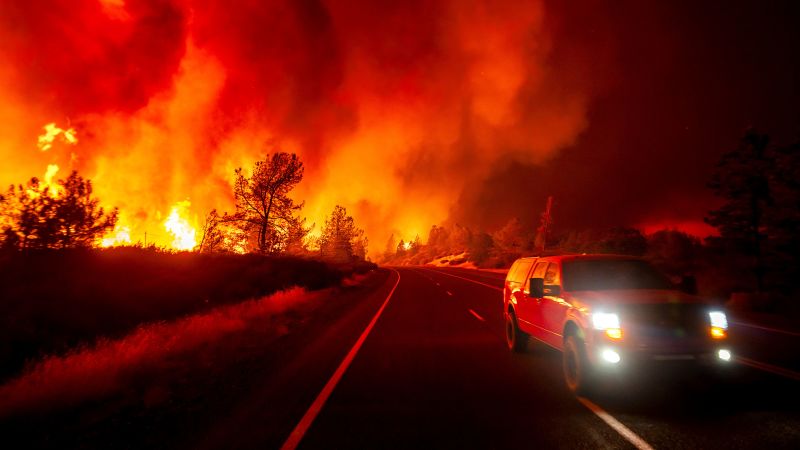After losing their Paradise home in the 2018 Camp Fire, the deadliest wildfire in California’s history, Michael and Kristy Daneau and their four daughters moved to Cohasset with insurance money and a portion of a settlement from PG&E. However, their new home recently burned down in the 2024 Park Fire, leaving them with nothing as they were uninsured due to being denied coverage by multiple companies.
The intensifying climate crisis in California has led to a rapid increase in wildfires, making home insurance increasingly unaffordable or even inaccessible to many residents. The Daneaus are now starting over without the safety net of insurance, relying on savings and a GoFundMe page to find a new place to live. The Insurance Information Institute reported $80 billion in insured losses from natural catastrophes in the US in the past year, with insurers leaving high fire-risk states like California to avoid costs.
The California Department of Insurance has recorded a rise in canceled policies and rate increases for homeowners in high fire-risk areas, leading to many being pushed to the California FAIR Plan as a last-resort insurer. However, even this option has become unattainable for some residents, as seen in the Daneaus’ case where the plan would have cost them $12,000 with a significant down payment. Insurance Commissioner Ricardo Lara aims to cover 85% of high-risk properties but lacks authority to force companies to increase coverage.
Efforts are being made to make California more wildfire resilient, with organizations like the Insurance Institute for Business & Home Safety advocating for stronger infrastructure and wildfire-resistant homes. The IBHS has developed the Wildfire Prepared program, which evaluates homes based on resilience standards such as wildfire-resistant components. Local non-profits like the Los Angeles Emergency Preparedness Foundation are also educating homeowners on the need to harden their homes to mitigate fire risks.
Homeowners like Angela Wilson, who lost her home in the 2018 Woolsey fire, are making changes to their properties to become wildfire resilient in collaboration with organizations like LAEPF. Wilson has taken steps to make her home more fire-resistant, even sacrificing her beloved gardens. Some insurers are providing lists of changes homeowners can make to maintain or potentially lower their insurance rates, but there is no guarantee of cost reductions. The uncertainty surrounding insurance coverage leaves families like the Daneaus grappling with how to move forward after losing everything.


